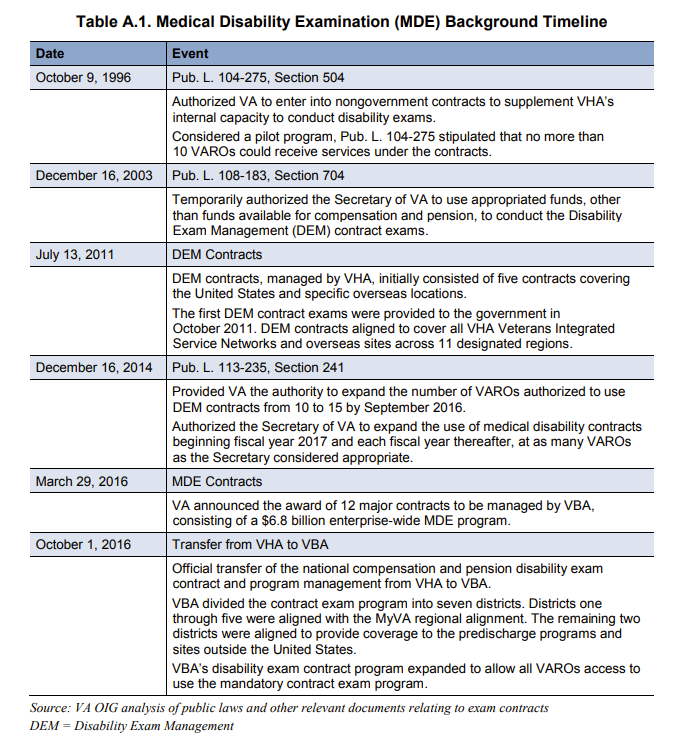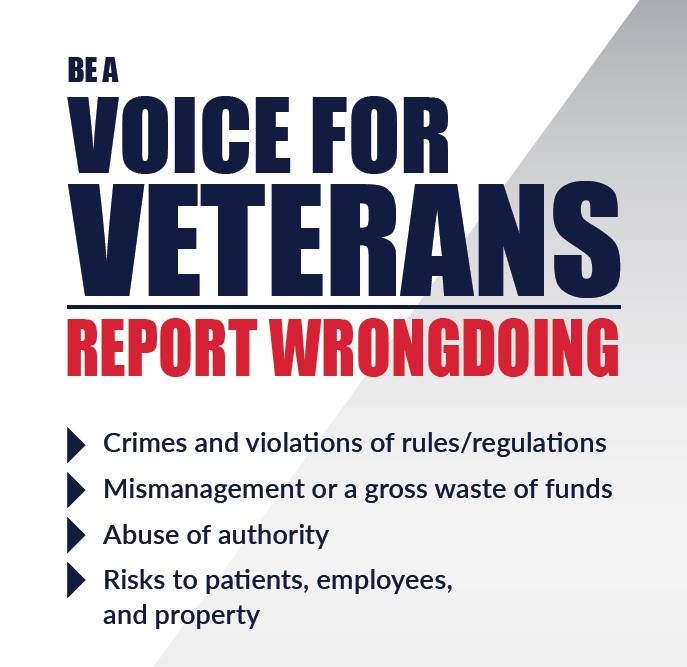- Home
- Stay Current
- Glossary
Glossary
This is a glossary of terms related to Department of Veterans Affairs (VA) compensation and pension examinations (C&P exams) for posttraumatic stress disorder (PTSD) and other mental disorders.
Abbreviations, such as "MST", are purple. Defined terms (words or phrases) are orange.
This is a work-in-progress. Please post a comment below if you would like me to define a term for this Glossary.
Table of Contents
- appeals process
- en banc
- MDE (company)
- Medical Disability Examination companies
- Military Sexual Trauma
- MST
- Negative reinforcement
- Presumption of competence
- Sexual harassment
PTSDexams.net is an educational site with no advertising and no affiliate links. Dr. Worthen conducts Independent Psychological Exams (IPE) with veterans, but that information is on his professional practice website.
A
Appeals process - See the infographic immediately below for a clear, concise explanation.
AMA = Appeals Modernization Act, Pub. L. No. 115–55, 131 Stat. 1105 (2017).
E
en banc (pronounced "on bonk")
Definition of "en banc" from the Oxford English Dictionary:1
Law (chiefly U.S.). A. adv. With all (or a majority or quorum) of the judges of a court present; before or by the full bench.
A sitting en banc is typically held by an appeal court in order to review decisions made by a panel of its members. Some courts (e.g. the Supreme Court of the United States) traditionally hear all cases referred to them en banc.
Footnote
1. Oxford English Dictionary, 3rd ed. (Oxford, UK: Oxford University Press, September 2017, rev. March 2021), https://oed.com/view/Entry/56701627
The legal phrase "en banc" discussed on Wikipedia:
In law, an en banc session (French for "in bench") is a session in which a case is heard before all the judges of a court (before the entire bench) rather than by one judge or a panel of judges.
En banc review is used for unusually complex cases, cases considered to be of greater importance, or when the court feels there is a particularly significant issue at stake.
Federal Appeals Courts in the United States sometimes grant rehearing en banc, to reconsider the decision of a panel of the court (consisting of only three judges) in which the case concerns a matter of exceptional public importance or the panel's decision appears to conflict with a prior decision of the court.
In rarer instances, an appellate court will order hearing en banc as an initial matter instead of the panel hearing it first.
Cases in United States courts of appeals are heard by three-judge panels, randomly chosen from the sitting appeals court judges of that circuit.
If a party loses before a circuit panel they may appeal for a rehearing en banc. A majority of the active circuit judges must agree to hear or rehear a case en banc. [minor edits; footnotes & hyperlinks omitted]
M
MDE - Medical Disability Examination (company)
Medical Disability Examination companies - The Veterans Benefits Administration (VBA), a component of the U.S. Department of Veterans Affairs (VA) contracts with companies to provide compensation and pension examinations (C&P exams) to veterans filing claims for compensation and other benefits due to service-connected disabilities.
These companies in turn contract with physicians, audiologists, psychologists, and other clinicians to conduct the exams.
As of early 2021, the companies with MDE contracts are:
- Logistics Health Inc. (LHI) [owned by OPTUM];
- QTC Medical Services Inc. (QTC) [owned by Leidos];
- Veterans Evaluation Services (VES); and
- VetFed Resources Inc. (VetFed).

The timeline (above) is Table A.1. (Appendix A) in:
- Oғғ. Iɴsᴘᴇᴄᴛᴏʀ Gᴇɴ., Dᴇᴘ'ᴛ Vᴇᴛᴇʀᴀɴs Aғғ., Rᴇᴘ. Nᴏ. 18-04266-115, Iɴᴀᴅᴇǫᴜᴀᴛᴇ Oᴠᴇʀsɪɢʜᴛ ᴏғ Cᴏɴᴛʀᴀᴄᴛᴇᴅ Dɪsᴀʙɪʟɪᴛʏ Exᴀᴍ Cᴀɴᴄᴇʟʟᴀᴛɪᴏɴs 19 (Jᴜɴᴇ 10, 2019).
Military Sexual Trauma - "physical assault of a sexual nature, battery of a sexual nature, or sexual harassment which occurred while the veteran was serving on active duty, active duty for training, or inactive duty training." [38 U.S.C. § 1720D(a)(1)]
References
- Counseling and treatment for sexual trauma, 38 U.S.C. § 1720D.
- Specialized teams to evaluate claims involving military sexual trauma, 38 U.S.C. 1164 ... (c) Dᴇғɪɴɪᴛɪᴏɴs.—In this section: (1) The term ‘covered mental health condition’ means post-traumatic stress disorder, anxiety, depression, or other mental health diagnosis described in the current version of the Diagnostic and Statistical Manual of Mental Disorders published by the American Psychiatric Association that the Secretary determines to be related to military sexual trauma. (2) The term ‘military sexual trauma’ means, with respect to a veteran, a physical assault of a sexual nature, battery of a sexual nature, or sexual harassment during active military, naval, or air service.
- » See also Evaluation of Service-connection of Mental Health Conditions Relating to Military Sexual Trauma, Johnny Isakson and David P. Roe, M.D. Veterans Health Care and Benefits Improvement Act of 2020, Pub. L. No. 116-315, § 5501(a), 134 Stat. 4932, __ (Jan. 5, 2021).
- Direct service connection; wartime and peacetime, Posttraumatic stress disorder, 38 C.F.R. § 3.304(f)(5).
- Veterans Health Admin., Dep't Veterans Aff., VHA DIRECTIVE 1115(2)(a) at 1 (May 8, 2018), ("The provisions of section 1720D of title 38, United States Code, require VA to provide counseling, care, and services to Veterans who experienced 'psychological trauma, which in the judgment of a mental health professional employed by the Department [of Veterans Affairs], resulted from a physical assault of a sexual nature, battery of a sexual nature, or sexual harassment which occurred while the Veteran was serving on active duty, active duty for training, or inactive duty training.' Section 1720D defines sexual harassment as 'repeated, unsolicited verbal or physical contact of a sexual nature, which is threatening in character.' VA uses the term 'military sexual trauma' (MST) to refer to these experiences.")
- Veterans Benefits Admin., Dep't Veterans Aff., General Information on Personal Trauma, M21-1 Adjudication Procedures Manual, pt. IV, subpt. ii, chap. 1, sec. D, no. 5a (rev. Apr. 20, 2020) ("Military sexual trauma (MST) is a subset of personal trauma and refers to sexual harassment, sexual assault, or rape that occurs in a military setting.")
MST - Military Sexual Trauma.
N
Negative reinforcement - From learning theory, in particular operant conditioning theory, "reinforcement" is an event that occurs shortly after a behavior and which increases the frequency of that behavior.
Most people are familiar with positive reinforcement, such as a teacher rewarding good behavior by placing a gold star next to a student's name. The gold star, which represents approval and positive attention, reinforces the student's good behavior thereby increasing the probability that the student will either continue to exhibit good conduct or improve even more.
Negative reinforcement is a bit harder to understand, mainly due to the way we process (interpret) the word "negative". The best way to remember what negative reinforcement means is to recall that reinforcement increases the frequency of a behavior.
Both positive and negative reinforcement increase the frequency of a behavior.
When a behavior is followed by the removal of an unpleasant experience, that behavior is likely to increase in frequency. This effect is negative reinforcement.
For example, posttraumatic stress disorder (PTSD) causes many patients to experience chronic tension and dysphoric mood. If a person suffering PTSD-induced chronic apprehension and unhappiness drinks several beers and then no longer feels tense and unhappy, negative reinforcement has occurred.
Drinking beer removed the unpleasant experience (tension and dysphoria). The removal of the unpleasant experience (apprehension and unhappiness) reinforces drinking beer.
Consequently, the behavior (drinking beer) will likely increase in frequency because it has been reinforced.
Reference
Eric S. Murphy, and Gwen J. Lupfer, "Basic Principles of Operant Conditioning", in The Wiley Blackwell Handbook of Operant and Classical Conditioning, eds. Frances K. McSweeney and Eric S. Murphy (Chichester, West Sussex, UK: John Wiley & Sons, 2014), 171.
P
Presumption of competence for VA compensation and pension examiners - The Department of Veterans Affairs (VA) does not need to demonstrate a C&P examiner's qualifications or competence for a claim being heard by the Board of Veterans Appeals, unless the veteran questions the examiner's competence.
- Rizzo v. Shinseki, 580 F.3d 1288, 1291 (Fed. Cir. 2009) ("Absent some challenge to the expertise of a VA expert, this court perceives no statutory or other requirement that VA must present affirmative evidence of a physician’s qualifications in every case as a precondition for the Board’s reliance upon that physician’s opinion. Indeed, where as here, the veteran does not challenge a VA medical expert’s competence or qualifications before the Board, this court holds that VA need not affirmatively establish that expert’s competency.").
- See also Bastien v. Shinseki, 599 F.3d 1301, 1306–1307 (Fed. Cir. 2010) (The veteran must specifically challenge the examiner's competence, and the veteran "... must set forth the specific reasons why the litigant concludes that the expert is not qualified to give an opinion.").
- Cf. Francway v. Wilkie here on PTSDexams.net ("Veterans who appeal a VBA claim decision to the Board of Veterans Appeals will increasingly raise the question of examiner competence and request information about the examiner's education, training, and experience. At a minimum, an appellant-veteran or their attorney will request the examiner's curriculum vitae (CV) or résumé.")
- Contra Mathis v. McDonald, 834 F.3d 1347, 1353 (Fed. Cir. 2016) (Reyna, J., dissenting from denial of rehearing en banc) ("... the court leaves in place a judicially created evidentiary presumption that in application denies due process to veterans seeking disability benefits. The presumption, that the Veterans Administration ordinarily and routinely selects competent medical examiners as a matter of due course, was created void of any evidentiary basis. Its application has resulted in a process that is inconsistent with the Congressional imperative that the veterans’ disability process be non-adversarial, and that the VA bears an affirmative duty to assist the veteran.").
- See also Mathis v. Shulkin, 137 S.Ct. 1994, 1995 (2017) (Gorsuch, J., dissenting) ("Lower courts often presume that Department of Veterans Affairs medical examiners are competent to render expert opinions against veterans seeking compensation for disabilities they have suffered during military service. The VA appears to apply the same presumption in its own administrative proceedings. ¶ But where does this presumption come from? It enjoys no apparent provenance in the relevant statutes. There Congress imposed on the VA an affirmative duty to assist — not impair — veterans seeking evidence for their disability claims. See 38 U.S.C. § 5103A(a)(1). And consider how the presumption works in practice. The VA usually refuses to supply information that might allow a veteran to challenge the presumption without an order from the Board of Veterans' Appeals. And that Board often won't issue an order unless the veteran can first supply a specific reason for thinking the examiner incompetent. No doubt this arrangement makes the VA's job easier. But how is it that an administrative agency may manufacture for itself or win from the courts a regime that has no basis in the relevant statutes and does nothing to assist, and much to impair, the interests of those the law says the agency is supposed to serve?").
S
Sexual harassment - "repeated, unsolicited verbal or physical contact of a sexual nature which is threatening in character." [38 U.S.C. § 1720D(f)]
Futhorc Runes
Some of these terms are unfamiliar and therefore difficult to understand at first. But at least they're not has hard as reading something written in Anglo-Saxon runes. ;^)
 Anglo-Saxon "futhorc" runes. License: CC BY-SA 4.0
Anglo-Saxon "futhorc" runes. License: CC BY-SA 4.0Subscribe to receive new articles and other updates
What Do You Think?
I value your feedback!
If you would like to comment, ask questions, or offer suggestions about this page, please feel free to do so. Of course, keep it clean and courteous.
You can leave an anonymous comment if you wish—just type a pseudonym in the "Name" field.
If you want to receive an email when someone replies to your comment, click the Google Sign-in icon on the lower right of the comment box to use Google Sign-in. (Your email remains private.)
↓ Please comment below! ↓



